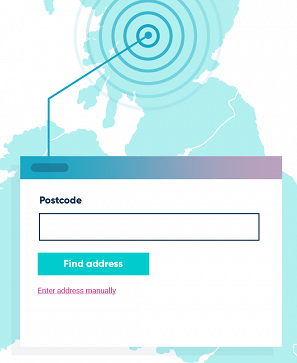
Knowledge Base Why address standardisation is essential for your business
Address standardisation is the process of converting addresses into the standard or normalised format of the local postal authority.
Globally, there are around 130 different postal formats, therefore it’s essential that address standardisation takes into account the local postal conventions.
Incorrect address formatting can lead to missing deliveries, duplicate addresses, or even address fraud. Adhering to local addressing conventions ensures that international businesses operating locally can maintain their reputation, and keep delivery costs down.
What is address standardisation?
Address standardisation includes correcting typing and formatting errors, adding missing components such as a state or postcode, and using correct abbreviations.
It’s important to note that address standardisation is not the same as address validation - standardisation alone does not necessarily prove an address exists, it simply formats the address according to the local postal authority guidelines.
How address standardisation works
To standardise an address, you need to check it against the formatting conventions of the local postal authority. For example, in the US, this address:
Jane Doe
567 abercrombie street
Apartment 6c
02210
Boston
would be standardised as follows:
Jane Doe
Apartment 6c
567 Abercrombie Street
Boston, MA 02210
And in Germany, this address:
Johannes Sommer
56 Hohensaatener strasse
Berlin 12679
would be standardised like this:
Johannes Sommer
Hohensaatener Str. 56
12679 BERLIN
For a small amount of address records, address standardisation could be done manually. The Universal Postal Union (UPU) has documentation for the Postal Addressing Systems (PAS) of each of their 192 member countries, which allows you to standardise any address according to the conventions of that country, for the most efficient international processing.
Technology, however, makes the process of address standardisation a lot quicker. Address validation APIs, such as Postcoder, can lookup the first line of an address and / or its postal code and return a standardised address that not only is formatted correctly, but also shown to exist according to an authoritative database like the Royal Mail Postcode Address File (PAF) or Eircode.
The benefits of address standardisation
Database maintenance
It’s considerably easier to maintain and combine address databases when addresses are stored in a standardised format.
Ecommerce and mailing
For ecommerce companies, standardised addresses reduce costly delivery errors and speed up order processing, such as online payments. They can also help make advertising mailouts more cost-effective, with less wastage due to mis-deliveries. For businesses operating internationally, this is particularly important.
Reduce fraud
Standardising addresses make it easier to spot fake and duplicate addresses. Address verification takes this one step further, confirming that the address relates to a physical property.
Logistics and transportation
Streamline processes, plan routes more efficiently, and reduce lost deliveries by using standardised addresses.
Geospatial data applications
Standardised address data is more effective than badly formatted data when used in data applications such as geographic information systems. Map data with greater accuracy with address standardisation.
Best practices
The easiest way to implement address standardisation is to work with a reliable address validation provider. Integrating an address lookup API into your website or app will enable you to capture accurate addresses from your customers.
For success, consider the quality of your addresses beyond the point of capture. When you save an address to your database, store the address’s unique identifier alongside the address and use it to check for updates in the future. For UK addresses, you can use the Royal Mail UDPRN in conjunction with Postcoder for this purpose.
Postcoder address lookup and validation
Postcoder is the address lookup API by Allies which provides the fastest, most reliable way to capture accurate addresses. It aggregates data from multiple datasets to ensure it always provides the richest, most detailed address records for the UK and internationally.


